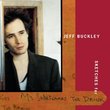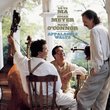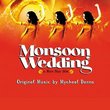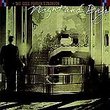| All Artists: Fela Kuti Title: The Best Best of Fela Kuti Members Wishing: 6 Total Copies: 0 Label: Mca Original Release Date: 2/1/2000 Release Date: 2/1/2000 Album Type: Import Genres: International Music, Jazz, Pop Style: Africa Number of Discs: 2 SwapaCD Credits: 2 UPCs: 731454319720, 0731454319720, 0506000127150 |
Search - Fela Kuti :: The Best Best of Fela Kuti
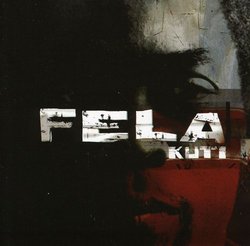 | Fela Kuti The Best Best of Fela Kuti Genres: International Music, Jazz, Pop
There is nothing subtle in the roiling Afro-funk of the late, great Fela Kuti. His twitchy, stomping rhythms are up in your face, his brass section sounds ready to skirmish with the JB Horns, and his confrontational, polit... more » |
Larger Image |
CD DetailsSynopsis
Amazon.com's Best of 2000 There is nothing subtle in the roiling Afro-funk of the late, great Fela Kuti. His twitchy, stomping rhythms are up in your face, his brass section sounds ready to skirmish with the JB Horns, and his confrontational, politically charged lyrics make modern punk or hip-hop sound like parlor chatter. This phenomenal collection from an artist easily the equal of Marley, Hendrix, or Dylan is nothing less than essential. --S. Duda Similarly Requested CDs
|
CD ReviewsEssential artist, but... C. Moon | Valley Village, CA | 01/21/2001 (5 out of 5 stars) "This album earns a 5 because its Fela, not because the selection is representative or exhaustive. As noted elsewhere, the 'part 2' indicator means you are missing the brilliant solos which often build for over ten minutes. I guess if you must make one and only one Fela purchase, this isn't bad, but you should instead start picking up the individual albums and hear these fantastic songs the way they were meant to be heard.I honestly believe that if Fela had been born anywhere else and if his music had not been actively supressed in Nigeria, he would be among one of the most famous names in music. His use of extended structure, his hybridizing of native musics, jazz and reggae elements, as well as an incredible sensibility when it came to highly memorable dance tunes--all of these mark Fela and his band as one of most outstanding artistic collectives of the second half of the 20th century. The fact it has taken this long for his music to get reissued is only indicative of the revisionist nature of music history. One can only hope that in the 21st century everyone will need to know Fela." A Global Superstar's Epitaph Meathook Williams | Warwick, Massachusetts | 08/09/2001 (5 out of 5 stars) "When Fela Kuti passed away a couple of years ago, Africa lost perhaps it's paramount musical artist. The death was AIDS related and served to further underscore the deep tragedy of that disease's stranglehold on the continent. Many governments in Africa were in official denial of it's spread, as the World Health Organization was to find over the years to it's horror. This is precisely the sort of thing that Fela railed against throughout his life. He was the most visible artist in Africa partly because of his constant struggle with the successive governments in his Nigeria. At one point, he fenced in his home and yard and proclaimed it to be the independant nation, "The Kalakuta Republic". Suffice to say, this didn't increase his popularity with the authorities. Thoughout his life he was beaten, imprisoned, and burned out of his home. His mother was thrown from a window, and eventually died as a result. So, if he was often a difficult person, it's all but impossible not to sympathize with his plight. He was uncompromising, but always positive. He cared. Western ears were, for the most part, introduced to Fela's music through his Fela Ransome-Kuti and Africa 70 as a result of a collaboration with Cream drummer Ginger Baker. At the time, the only other music stars from Africa that got any exposure here in the States were Miriam Mekeba and Michael Olatunji (now Babatunde Olatunji). Yers later, fela re-christened himself Fela Anikulapo-Kuti, "the one who holds death in his pouch". He married prodigiously, once marrying twenty-seven women at once. And most of them performed in his act, often swelling the number on stage to fifty or more. Though he was adept with many instruments, those who saw his concerts will mostly recall his prowling the stage, or even the audience. Just about all of Fela's recordings convey the spirit of his live performances, because the pretty much were just that. No studio wizardry, no overdubs. MCA has put together a splendid package here, with over two and a half hours of the very best of this unique artist's oeurvre, and attractively priced to boot. The material covers the yers from 1972 to 1989 and includes "Shufferin' and Shmilin'", his best known song about the violent struggles between Christians and Muslims in Africa, something he felt, correctly, was not indiginous to Africa at all, but brought there by Europeans and people from the Middle East. If anything, the song is even more relevant today than when it was recorded in 1978. It should also be said that both his father and grandfather were Protestant ministers. Another standout track, is the cutting "Zombie", a song in protest of the accesses of army troops. This was, of course, the song which precipitated the seige and destruction of Kalakuta. Three of the thirteen cuts are edited down to a more manageable size, but they're lovingly shortened and you won't notice a thing. Especially during those years, most African music was released as what we would call a 12" single, one song on each side, often close to a half hour each. In spite of the minimal editing, there are no short tracks here. Though all of the songs are social or political commentary, Fela's special humor is endearing. Whether the lyrics are biting or not, there is always an undercurrent of tongue-in-cheek. He makes some great noises as he's singing as well. This is an excellent compendium, well suited to the needs of longtime fans, or as a perfect introduction to the art of this eloquent man, who though less well known, is as important a voice for social protest as Bob Marley was. Essential listening, pretty damn good for dancing too." Rhythm for the people Keir H. Fogarty | fort collins, colorado United States | 04/01/2003 (5 out of 5 stars) "What to say about this music? This is funk in the truest sense of the word--funk that gets your body moving and grooving of its own will--funk that grips with the issues of Fela's Nigeria in the most potent, life affirming way--In many ways this funk is better than James Brown, because whereas James Brown sang about Papa's brand new bag and hot pants, Fela tackled issues in his songs like freedom and preservation of his african heritage--often at the risk of assasination by the corrupt Nigerian governments that he railed against--Fela wasn't afraid of life--he dove into it--you can hear that in the music--the only thing I can possibly say bad about this album is that my fave Fela song, "Kalakuta Show" doesn't make an appearance--Fela is to Africa what Bob Marley is to Jamaica---a legend, an unbelievable musician, and a positive role model"
|

 Track Listings (7) - Disc #1
Track Listings (7) - Disc #1